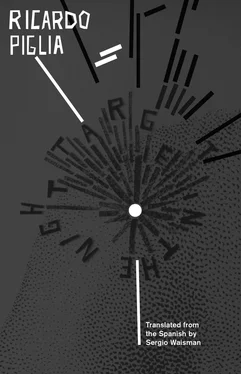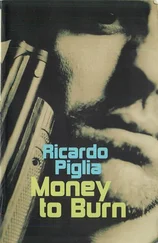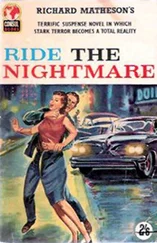Ricardo Piglia - Target in the Night
Здесь есть возможность читать онлайн «Ricardo Piglia - Target in the Night» весь текст электронной книги совершенно бесплатно (целиком полную версию без сокращений). В некоторых случаях можно слушать аудио, скачать через торрент в формате fb2 и присутствует краткое содержание. Год выпуска: 2015, Издательство: Deep Vellum, Жанр: Современная проза, на английском языке. Описание произведения, (предисловие) а так же отзывы посетителей доступны на портале библиотеки ЛибКат.
- Название:Target in the Night
- Автор:
- Издательство:Deep Vellum
- Жанр:
- Год:2015
- ISBN:нет данных
- Рейтинг книги:3 / 5. Голосов: 1
-
Избранное:Добавить в избранное
- Отзывы:
-
Ваша оценка:
- 60
- 1
- 2
- 3
- 4
- 5
Target in the Night: краткое содержание, описание и аннотация
Предлагаем к чтению аннотацию, описание, краткое содержание или предисловие (зависит от того, что написал сам автор книги «Target in the Night»). Если вы не нашли необходимую информацию о книге — напишите в комментариях, мы постараемся отыскать её.
is an intense and tragic family history reminiscent of
, in which the madness of the detective is integral to solving crimes.
, a masterpiece, won every major literary prize in the Spanish language in 2011.
Ricardo Piglia
Target in the Night — читать онлайн бесплатно полную книгу (весь текст) целиком
Ниже представлен текст книги, разбитый по страницам. Система сохранения места последней прочитанной страницы, позволяет с удобством читать онлайн бесплатно книгу «Target in the Night», без необходимости каждый раз заново искать на чём Вы остановились. Поставьте закладку, и сможете в любой момент перейти на страницу, на которой закончили чтение.
Интервал:
Закладка:
He was tired, but his fatigue had become a kind of sleepless lucidity. He had to reconstruct a sequence, move from the chronological order of facts to the logical order of events. His memory was an archive, his recollections burned like stars in the closed night. He never forgot anything having to do with a case until he solved it. Later everything was erased. But during the investigation, he lived obsessed with the details that went in and out of his conscience. He arrived with two suitcases. He carried a brown leather bag in his hand. He didn’t want anyone to help him with that. They pointed out the hotel across the way. Why was that fifty-dollar bill on the floor? Why did they go down to the basement? That’s what he had. And the fact that a man the size of a cat had climbed into the old service lift. His thinking was implacable, he grew exasperated, he postponed the final conclusion forever. I don’t have to try to explain what happened, I just need to make it comprehensible. I have to understand it myself, first.
Instinct — or, better yet, a certain intimate perception that didn’t quite bloom into consciousness — told him that he was about to find a way out. Whatever it was, he decided to move. He started his car and turned on the lights. Several frogs jumped into the water and a creature — an armadillo? a guinea pig? — stood frozen in a clearing, near the willow trees. Croce backed the car up a few meters, turned around, and headed into the open countryside. He drove along the edge of the Reynal Estancia until he reached the asphalt. As he drove for several leagues by the bordering fence, he saw chimango buzzards perched silently on the posts and animals grazing on the other side.
Croce followed the light from the factory, the white gusts in the sky, toward the dark mass of the building on top of the hill. The road led to the warehouse entrance for the delivery trucks. The Belladona brothers had gotten the road paved to speed up the transports that came and went from the company to the highway to Córdoba, site of IKA-Renault headquarters. But the plant had collapsed overnight. The brothers had settled the severance pay for the factory workers after the turbulent negotiations with the SMATA Union. Hounded by their debts, the demands to liquidate, and the accumulating mortgage payments, they were forced to bring production nearly to a halt. It had been a year now since the dissolution of the firm and his brother’s death, and Luca had shut himself in the factory, having decided to carry on and keep working on his inventions and his machines on his own.
Croce approached the industrial complex, a row of sheds and galleries facing the parking lot. The meshed-wire fence was drooping in several places, and Croce drove in through one of the broken gates. The cement lot appeared to be abandoned. Two or three isolated lights poorly illuminated the place. Croce parked his car in front of some tracks, between two cranes. A very tall plume could be seen to the side, in the darkness, like some prehistoric animal. He preferred to enter through the back, he knew it was unlikely that anyone would open the front door for him. There was light in the windows of the upper levels of the factory. Croce made his way in through one of the partially open metal shutters and down a corridor that led to the central garage. The large machines were all quiet; several partially assembled cars were still elevated above the service pits in the assembly line; a tall pyramid of striated steel, painted brick red, rose up in the middle of the work floor; off to a side there were gears and a large, grooved wheel, with chains and pulleys to take small wagons filled with materials into the metal construction.
“Holy Mother of God,” Croce yelled toward the ceiling.
“How do you do, Inspector? Do you have a search warrant?”
The happy, relaxed voice came from up above, where a heavy man leaned out from a balcony on the upper level. Nearly two meters tall, his face reddened, his eyes light-blue, Luca was wearing a leather apron and an iron mask with a glass visor hanging around his chest, and he was holding an acetylene soldering iron in his hand. He seemed jovial and pleased to see the Inspector.
“How are you, Gringo? I was just passing by,” Croce said. “You haven’t been to see me in a while.”
Luca came down an elevator, illuminated by the light from the upper level, and walked toward the Inspector, wiping his hands and wrists on a rag that smelled of kerosene. Croce was always moved to see Luca because he remembered him before the tragedy that had turned him into a hermit.
“We can sit here,” Luca said, indicating a couple of benches and a table toward the back of the garage, near a one-cylinder gas stove. Luca put a pot of water on and started preparing the mate .
“As La Peugeot’s French friend René Queneau used to say, Ici, en la pampá, lorsqu’on boit de maté l’on devient…argentin .”
“I can’t drink mate ,” Croce said. “It’s bad for my stomach.”
“No gaucho would ever say that.” Luca was having fun. “Come on, have a little bitter one, Inspector.”
Croce held the mate gourd and drank carefully through the tin straw. The hot, bitter drink was a blessing.
“Gauchos didn’t eat barbequed beef,” Croce said, all of a sudden. “They didn’t have teeth. Can you imagine them, always on horseback, smoking black tobacco, eating crackers, they’d lose their teeth right away and couldn’t chew meat anymore. They only ate cow tongue, and sometimes not even that.”
“They lived on pudding with maize and ostrich eggs, poor country folk.”
“A lot of vegetarian gauchos.”
They went back and forth, cracking jokes, like every time they met, until little by little the conversation became more focused and Luca grew serious. He was absolutely convinced that he would succeed. He started talking about his projects, about the negotiations with the investors, about how he was resisting his rivals and how they wanted to force him into selling the factory. He didn’t explain exactly who his enemies were. Croce could just imagine them, Luca told him, the Inspector knew who they were even better than Luca did, it was the same culprits as always. I know him as if he were my son . Luca knew that he was completely cornered, he was fighting on his own, he didn’t have any strength left, he needed funds, he had contacts in Brazil, in Chile, businessmen interested in his ideas who might advance him the money he desperately needed. He was yoked with debt, especially by his upcoming mortgage payments. “When it rains, the banks take away your umbrella,” Luca said. Nobody would toss him a rope, they wouldn’t give him a hand, no one in town, or in the district, or in the entire province. They wanted to foreclose the mortgage and auction off the plant, take over the building, speculate with the land. That’s what they wanted. Lousy dogs! He had to pay his debts with dollars purchased on the black market and sell what he produced with dollars at the official exchange rate. He was on his own in the whole country, everyone around him, his neighbors, the dirty pigs, and the military too, had turned against him. Speculators. They’d broken his dead brother’s will, that was the saddest part of it, the thorn in his heart. Lucio was naïve, that’s why he had died. In dreams, at night, he sometimes saw the destruction reach the roofs of the houses in town, like in the big floods of ’62. He’d be riding on a horse, bareback, under a bright moon, lassoing what he could save: furniture, animals, coffins, church saints. That’s what he had seen. But he also saw a car driving through the countryside and he was sure that it was his brother, coming back to his side to help him. He saw him clearly, driving like mad, like always, pedal to the metal, rumbling through the plowed fields. Luca was quiet for a moment, a peaceful smile on his frank face, and then he added, in a low voice, that he was sure that the same people who were after him had done in Durán.
Читать дальшеИнтервал:
Закладка:
Похожие книги на «Target in the Night»
Представляем Вашему вниманию похожие книги на «Target in the Night» списком для выбора. Мы отобрали схожую по названию и смыслу литературу в надежде предоставить читателям больше вариантов отыскать новые, интересные, ещё непрочитанные произведения.
Обсуждение, отзывы о книге «Target in the Night» и просто собственные мнения читателей. Оставьте ваши комментарии, напишите, что Вы думаете о произведении, его смысле или главных героях. Укажите что конкретно понравилось, а что нет, и почему Вы так считаете.












